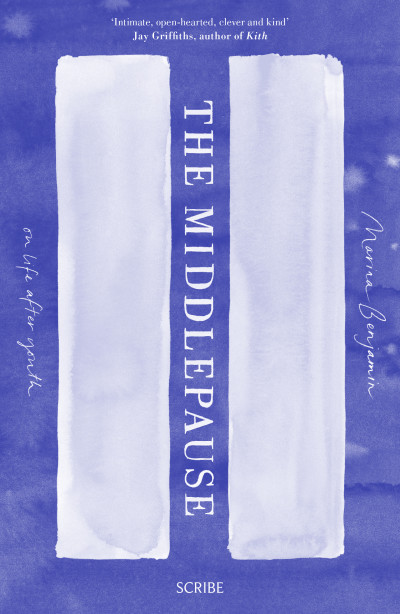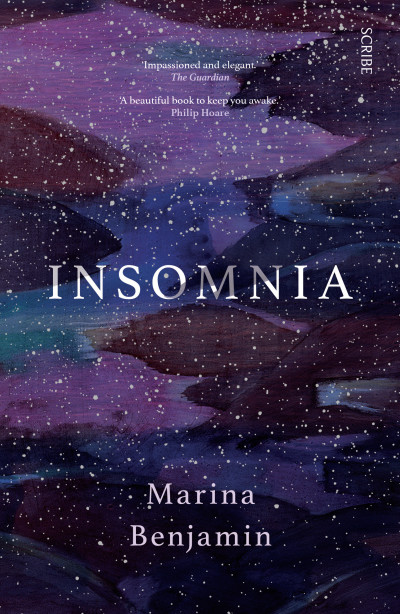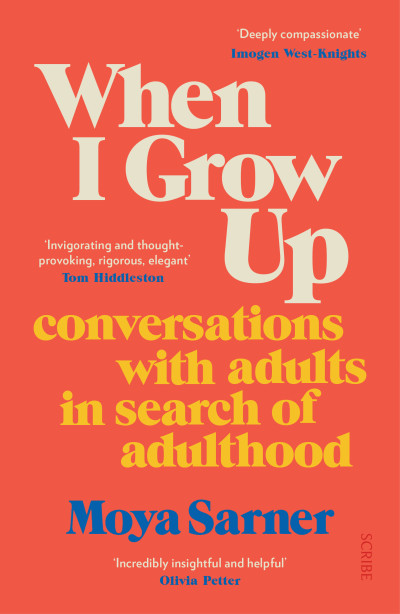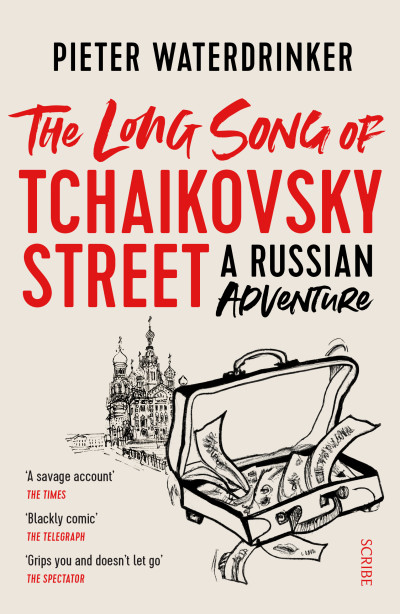‘A genre of memoir currently in vogue involves entwining the author’s personal story with the cultural history of a given phenomenon, so that each may illuminate the other. Mellow introspection and anecdotal whimsy are spliced with tidbits of cultural criticism … Benjamin’s is a refreshingly grounded and sanguine voice.’
Houman Barekat, The Spectator
‘Benjamin’s impassioned and elegant memoir is not just an intimate account of a disorder for which there is still no straightforward cure, but a defiant celebration of its paradoxical potential … This provocative, at times anguished book has by the end completely overthrown our expectations by repositioning insomnia as a form of resistance, linked to the author’s own freedom to create.’
Elizabeth Lowry, The Guardian
‘Anyone who has suffered through the wide-eyed hell of a sleepless night will find something painfully recognisable in Marina Benjamin’s searingly honest memoir about her years battling for rest … Insomnia has a dreamlike quality, structured as a series of fragmented and sometimes unrelated thoughts and memories … [There are] moments of stunning poetry, suddenly interrupted by passages of fevered introspection … At its heart this is a book about desire, and the constant dynamic tussle between hunger and satiation. What does it mean to exist on the threshold of darkness and light?’
Lucy Hunter Johnston, Evening Standard
‘[An] idiosyncratic, questing book.’
Hephzibah Anderson, Mail on Sunday
‘A beautiful, lyrical and intelligent memoir that examines those hours in which we lie awake in the dark … this is an elevating and illuminating read about that experience. So next time you can’t sleep, reach for this book.’
Marta Bausells, ‘Book Club’, Elle
'An exquisite meditation on time, the dark hours, and the complexities of longtime love, Insomnia is a poetic journey into the wide-awake, generous, exciting mind of Marina Benjamin. I couldn't put it down, and my own inner world is richer for it.'
Dani Shapiro, author of Hourglass
‘Marina Benjamin is the Scheherazade of sleeplessness, spinning tale upon tale, insight upon insight, in frayed and astonishing and finally ecstatic loops.’
Francis Spufford, author of Golden Hill
‘Insomnia reads with the surreal and suspended cadence of those lonely hours in the night that only the sleep-less experience. It is, therefore, a kind and intimate companion to our meandering, agitated, non-knowing, spiritually naked thoughts at such hours. Keep it by your bedside lamp!’
Sarah Wilson, author of First, We Make the Beast Beautiful
‘Benjamin writes beautifully. This is a graceful rumination on the ‘wicked kind of trespass’ that is insomnia, a work cogent and allusive as a lucid dream, a palimpsest of insights to dip into, day or night.’
Anna Funder author of Stasiland and All That I Am
‘As well as a very personal account, it is also a very idiosyncratic cultural history of sleeplessness, a poetic meditation on what we lose and what we gain from these unwilled encounters with brute night. The fragmented structure fits well with the subject, and Benjamin is excellent at describing the jagged loops and whirrs of a mind failing to find rest.’
Ella Walker, The Herald
‘Clever, wise and witty — and ever so slightly cosmic too. This is for us who know what it is to be forlorn at 3am ...’
Shahidha Bari
‘Marina Benjamin’s slim meditation on sleeplessness makes for interesting bedtime reading … Art, philosophy and science jostle together, the fragments flowing in and out of each other. Things that seem unrelated on the surface become entwined with one another.’
Oh Comely
‘A wonderful, sometimes painful compendium of thoughts about sleeplessness and its meanings. I recognised its nocturnal terrain.’
Gerard Woodward
‘Will nurture you at any wakeful hour.'
Joanne Limburg
‘A beautiful book to keep you awake.’
Philip Hoare
‘A few years ago, I signed up for a sleep therapy group that was strikingly similar to the one Benjamin goes through for her own insomnia in her aptly named book Insomnia. What was most unsettling about this group was our sleep therapist's insistence that our individual struggles with sleep were neither as exceptional nor as debilitating as we insisted they were. With seemingly no way out of our sleepless nights, we had chosen to burnish them and, as Benjamin quotes from a shrink, we fell “in love with our neuroses”. What Benjamin accomplishes with her book is to capture the contradiction of not wanting to be alone and wanting to be the only one that so many insomniacs experience. Writing not just about her own experience, but of fellow insomniacs throughout history, she seems to argue that insomnia gifts as much as it robs, and that insomniacs are, in the end, as protective of their sleeplessness as the snippets of rest they manage to steal. Having finished her book, I am happier to belong to this particular clan. To lie awake in solidarity.’
Lillian Li, author of Number One Chinese Restaurant
‘For anyone sleep deprived, this will offer unexpected comforts.’
Saga Magazine
‘This is a really wonderful book — good for night owls too, even if you are not an insomniac. And just for those who are interested in the imagination and creativity.’
Diana Henry
‘Reading Marina Benjamin’s memoir, Insomnia, has made me feel less alone in all that sleeplessness. She has made me feel seen … Insomnia is a lyrical, thoughtful meditation on sleeplessness. It’s about Odysseus and Penelope, Oedipus and Athena, Nabokov and Gilgamesh, and Rumi and Robinson Crusoe. It’s about art and literature and mythology and creativity and productivity and peace. It’s not about fixing it so much as understanding it. It’s a book to make you feel less alone.
Refinery29
‘Ought to be read not as self-help, but as an addition to that venerable philosophical genre, the consolation. It might keep you awake, but in solving and inquiring company’
Brian Dillon, 4Columns
‘It’s a book about insomnia’s existential and somatic qualities … Insomnia is a striking reminder of how strange we remain to ourselves. We spend a third of our lives in sleep, but our relationship with that condition is, as Benjamin describes it, “perverse” and “fundamentally embattled”. Read this at night at your own peril.’
The Saturday Paper
‘[Insomnia is] a memoir in roving fragments that mirror the workings of a sleepless mind.’
Lilly Dancyger, Vulture
‘A short, ludic book about long white nights ... [Benjamin] writes feelingly about the frustrations of being awake when you don’t want to be ... Her moans about her futile thought-loops alternate with flattering descriptions of her radiant nocturnal consciousness.’
Zoë Heller, The New Yorker
‘Benjamin’s lyrical style rebounds with such manic energy, and bounces so vigorously from idea to idea, that Insomnia does nearly read like a free-form poem ... a collage of free associated literary concepts and beautiful lapidary phrases, pasted together by a mind in the grip of the kind of delirium that only chronic sleeplessness can bring.’
Nicky Woolf, Australian Financial Review
‘A darkly thrilling beauty of a book … Benjamin’s talent is Arachne-like. The materials she integrates are eclectic, and the resulting constructed web of her thoughts is architecturally robust and resplendent with dazzling prose.’
Tali Lavi, Australian Book Review
‘Insomnia is not so much a lament for lost oblivion as a defiant hymn to the wild isle of Insomnia.’
Fiona Capp, Sydney Morning Herald
‘Whatever the roots of her insomnia, in this book, Marina Benjamin embraces her condition and effects an alchemical transformation of it into something rich and strange … Benjamin’s willingness to look at her world “at a tilt” allows her vision of profusion and creative potentiality to illuminate, and set against, the terrors of the night.’
Howard Cooper, Jewish Chronicle
‘Conjuring a spell over those dark hours that threaten to overtake her, Benjamin’s writing, like Scheherazade’s fables, manipulates and even dispels time. One finishes her book as if emerging, ironically, out of a dream: we cannot say how long it lasted, only that the sensation will, we hope, stay with us for a while.’
Rajat Singh, The Rumpus
‘[Insomnia] will provoke you to think more deeply about sleeping and wakefulness — the mythology and politics of something we take for granted, until it eludes us.’
Sarah Ditum, In The Moment
‘Candid … thought-provoking.’
New Books
‘Velvety ruminations on night wakefulness ... Benjamin’s mind works like a wide-roving trawler that rakes an area repeatedly before moving on to adjacent territory ... Insomnia turns out to be somewhat of a celebration of sleeplessness as well as a lament ... and is filled with memorable images.’
Heller McAlpin, NPR
‘A work that takes its structure from the insomniac’s mind, flitting restlessly between ideas to build what may be described as a philosophical portrait of sleeplessness ... This strange, entrancing book is in many ways a love letter, albeit one to a particularly irritating lover. Benjamin wants, she writes, “to flip disruption and affliction into opportunity, and puncture the darkness with stabs of light”.’
Jane McCredie, Weekend Australian
‘Elegant.’
Colin Grant, The Observer
Praise for The Middlepause:
‘Benjamin has conjured something philosophically poised and poetic from an unlikely subject, as much about the sanctuary of place and coming to terms with time, seasons and life’s cycles, and all rendered with clarity and calm.’
The Saturday Age
Praise for The Middlepause:
‘Lucid and sophisticated … A restrained but wonderful guide to the convulsive changes of 50 and over … This is a book that yields valuable insights on almost every page.’
The Guardian
Praise for The Middlepause:
‘Women do a lot of things to mark turning fifty. Go to a resort! Have a bang-up party! Far, far better: read The Middlepause.’
Jill Lepore, author of The Secret History of Wonder Woman
'Best read at those hours of night when sleep is elusive, this magical book is a series of meditations and cultural explorations into a state that at some time affects us all.'
Thomas Arnold Fanning, author of Mind on Fire



























